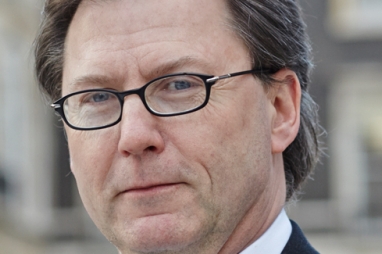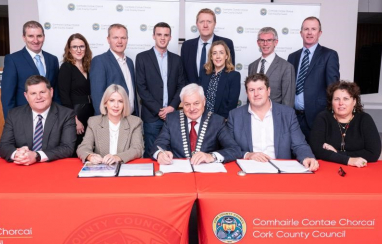- retro 11 jordans authentic - Mindarie-waShops - The Nike gray Air Max Dn is Dropping For Air Max Day 2024
- Nike Killshot KD 10 Opening Night , Женские кроссовки nike Killshot air force 1 — цена 1200 грн в каталоге Кроссовки ✓ Купить женские вещи по доступной цене на Шафе , Украина #129154822
- air jordan outlet real
- nike sb varsity red dunks black and blue white
- In this incredible set of vintage prints is the Air Jordan VIII - Air Jordan Retro 2016 Release Dates - The Air Jordan 1 Mid continues its impressive lineup
- Miles Morales Shameik Moore Air Jordan 1 Spider Verse
- air jordan 1 retro high og university blue 555088 134
- Air Jordan 1 Satin Black Toe CD0461 016 2019 Release Date 4
- on feet air jordan 1 low chicago
- Nike Blazer Mid 77 Catechu DC9265 101 Release Date
- Home
- News and analysis
- Info hubs
- Events
- Video
- Case Studies
- About us
- Magazine
- Advertising
Produced for the industry by the Association for Consultancy and Engineering
Comment
Roads investment – no more stop-start please

So the A14 upgrade has the green light and all the road spending cuts of 2010 have been more than reversed. Investment must continue, ending historic patterns of start-stop-go, says RAC Foundation director Steve Gooding
And so the long awaited A14 Cambridge to Huntingdon upgrade scheme has this month achieved a major milestone with the approval of its development consent order. According to the Highways England website, signs of mobilisation will be visible in July this year and the scheme will be open to traffic in 2020.
Hurrah!
There could, though, be another way of plotting the milestones in the life of this scheme; by listing the dates when it was announced, the dates when it was cancelled, and the dates when it was re-instated. As an aside, we could also plot the debate over whether it might be funded through tolling or not.
This pattern of start-stop-go can be seen time and again with major infrastructure schemes and has been a particular problem for road projects. One might think of the A21 Tonbridge to Pembury duelling, the A453 widening off the M1 at Nottingham or, indeed, the Stonehenge tunnel.
Problem? Yes, because endlessly putting schemes into the deep freeze and then fishing them out again is an expensive business. Teams are established and disbanded. Bid teams are geared up and stood down. Equipment is re-directed to other work.
And at the programme level, it leads to an understandably confused and cautious supply chain. Would you invest in new plant and machinery if your order book was subject to such a roller-coaster of decisions? Particularly when big infrastructure construction is an international game?
When there’s a major shock to the financial system it is understandable that the Treasury needs to act. But the decisions taken over the course of the last Parliament suggest that some clearer, longer-term thinking needs to be applied to the benefits of infrastructure investment in refuelling the economy alongside the short-term imperatives to save some cash. Instead, all the road spending cuts of 2010-11 were more than reversed by 2015.
The fact is, major schemes are by their very nature big, expensive undertakings that necessarily take time to plan and design. That might be inconvenient, but that doesn’t stop it being inevitable.
Which is why we welcomed two major policy initiatives taken by George Osborne and Patrick McLoughlin in 2015 and 2016. First, to establish a five-year Road Investment Strategy – the ‘RIS’, a specification and a funding envelope enabling a newly reshaped Highways England – and its suppliers - the clarity and certainty needed to get on with the job. Second, the hypothecation – channelling – of income from Vehicle Excise Duty (Road Tax as many of us think of it) to pay for the programme (from 2020).
And we now have a National Infrastructure Commission, charged with taking a long-term, independent view of our infrastructure needs, including roads.
Work is already underway on RIS 2, which might, just might, extend beyond the Highways England network, where the problem of uncertainty over the fate of major schemes is more than trumped by the inadequacy of funding for road maintenance.
Work being led by David Quarmby and Phil Carey for the Rees Jeffreys Fund is posing pertinent questions about the genuine extent of the ‘national’ road network in England, and is coming to the view that Highways England is the steward for many, but by no means all, of our most important economic distributors. The rest are owned and managed by local authorities, hard pressed by other spending pressures and reliant on bidding for major schemes through whichever competition is on offer at the time, such as the Government’s growth deals with Local Enterprise Partnerships.
So there’s more work to be done, taking the road network as a whole into account.
Meantime, companies in the road construction and maintenance supply chain will be looking to see just how the Government intends to go about establishing the Roads Fund. Will the money still pass through the Treasury coffers, with the temptation that presents for some to be siphoned off, or will it pass directly to the Fund? The Government has been clear about its intentions, but will those intentions be made binding in law?
Because we all know, don’t we, where the road paved only with good intentions leads.
Steve Gooding is director of the RAC Foundation, formerly director general for roads, traffic and local group at the Department for Transport





